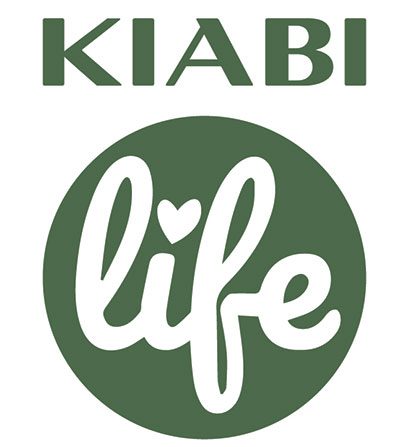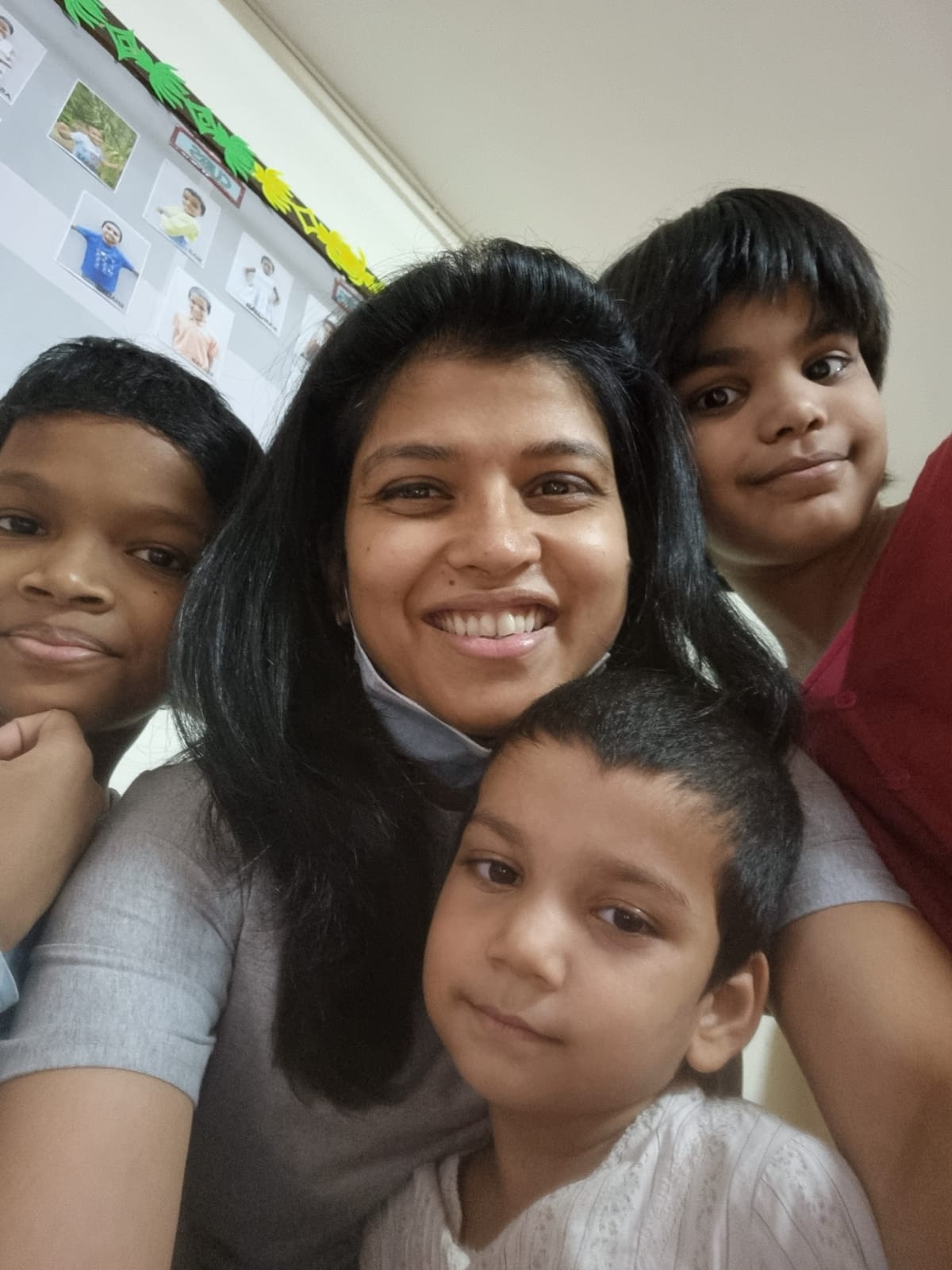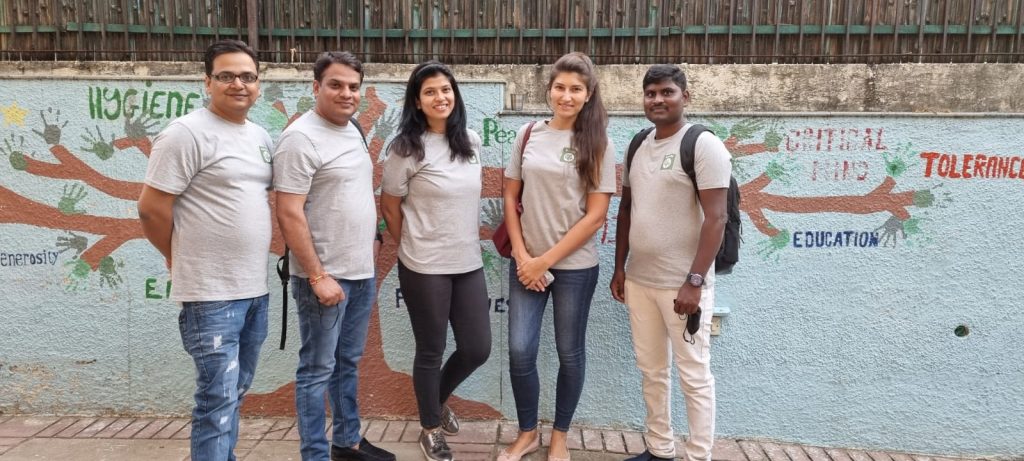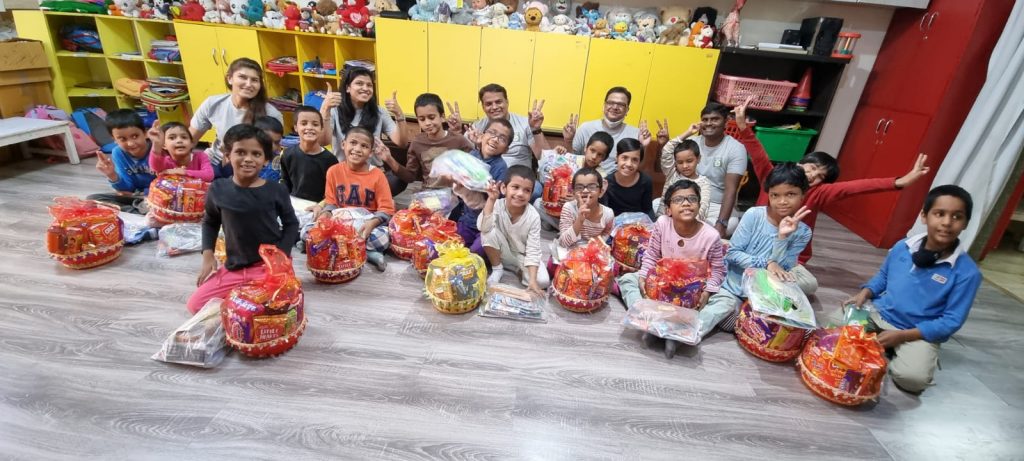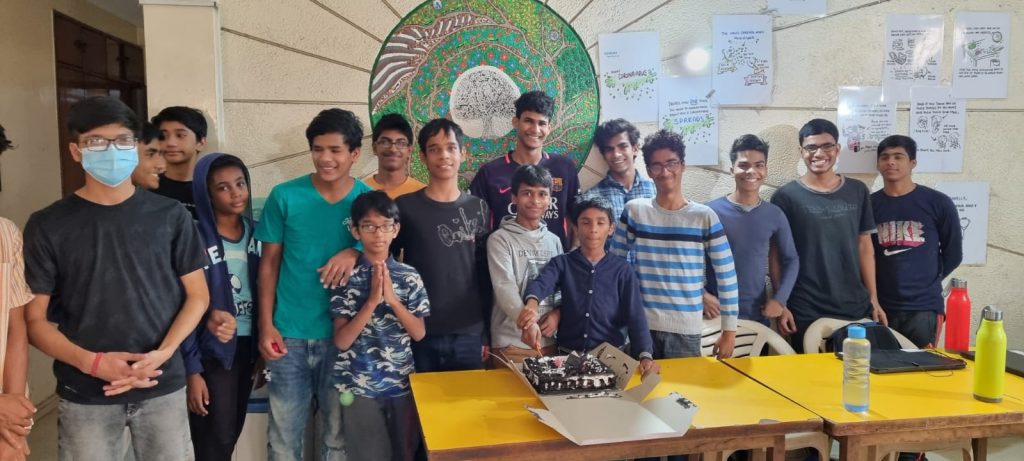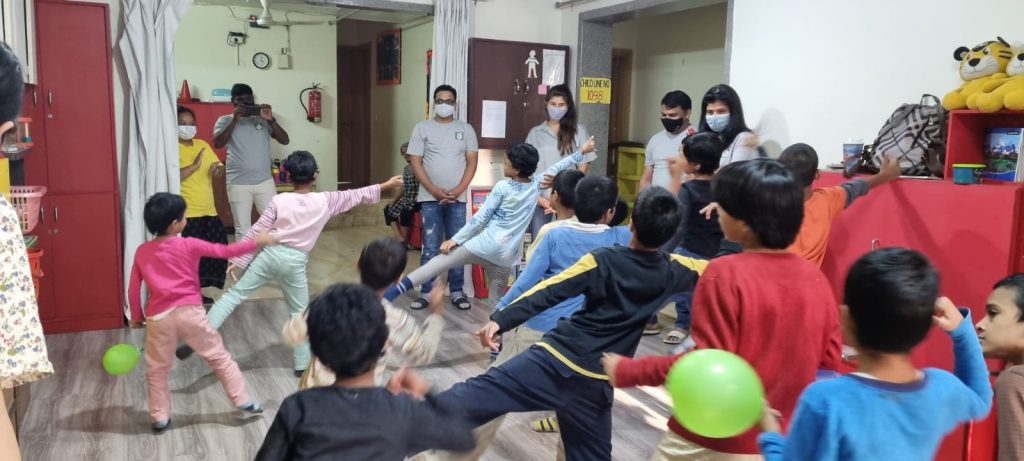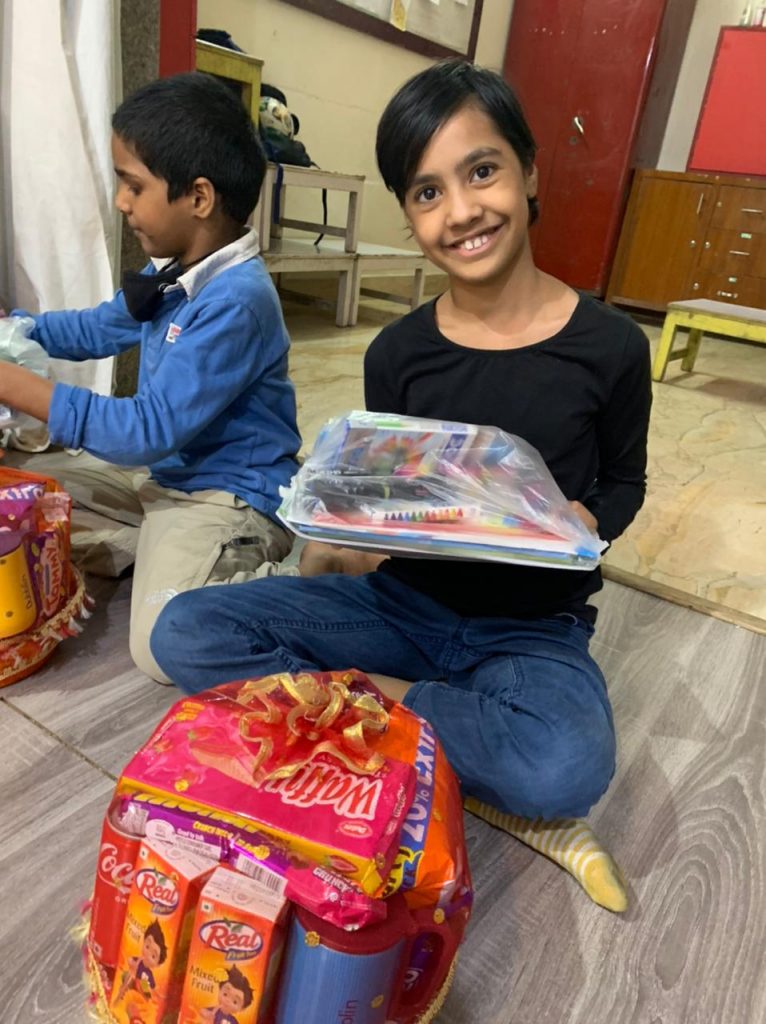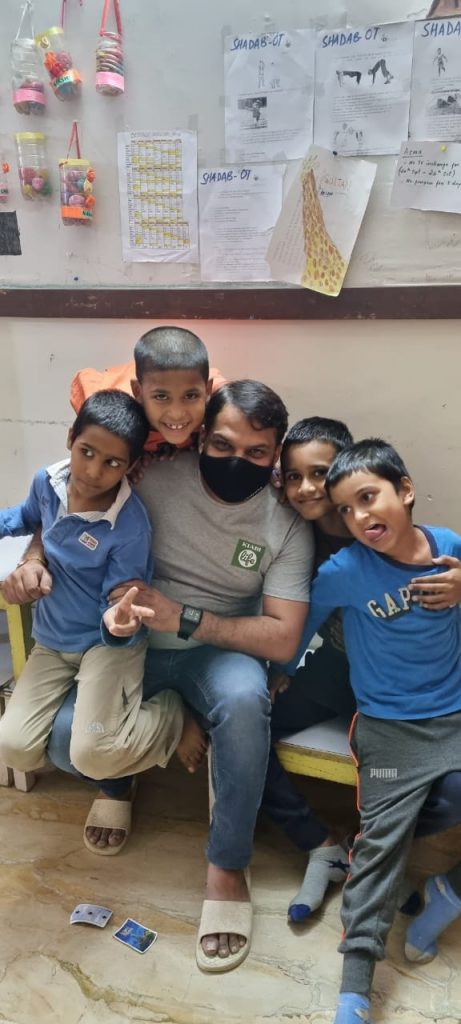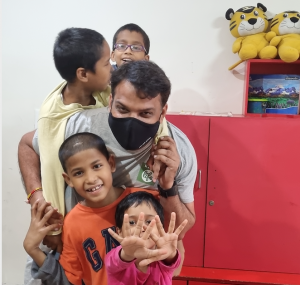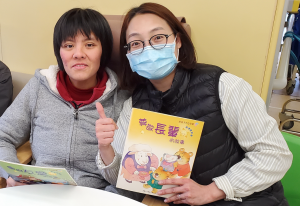Five Kiabers have been regularly visiting the homeless of TARA Boys, one of the two children’s homes of TARA Homes in New Delhi. “We are all very proud to support the mission of this NGO and contribute to the welfare, education and protection of these youngsters,” says Neha, a Kiabi Life Endowment Fund Steering Committee Convenor, who was involved in the project.
TARA Boys and TARA Tots are two children’s homes in the heart of New Delhi. The first one welcomes twenty boys aged 6 to 18, the second one twenty boys and girls aged 2 to 10. Both facilities are accredited by the Indian Ministry of Women and Children’s Affairs under the Juvenile Justice Act 2015. “They take in children who are in need of care and protection and who are referred to us by the magistrates if they feel they are in great danger in their home environment,” says Jasmeet Kaur, TARA’s partnership coordinator. “Most of the children we take in have been referred to our homes because they were victims of violence or trafficking, living on the streets, suffering from physical and/or sexual abuse, being forced to work or because their parents were unable to raise them.
Removing the danger
According to the Juvenile Justice Act, the Child Protection Committee has the sole authority to decide whether the child is in need of care and protection and to order placement. In this regard, TARA has established an admission policy detailing the eligibility criteria for its two homes.
Young children who enter TARA Tots are between 18 months and 4 years old at the time of admission. Either the mother is absent (death, disappearance, estrangement, mental or physical incapacity, serious illness) and the family cannot provide another mother figure. Or she is present, but the environment is highly unhealthy or dangerous for the child (sex work in the home, child in physical and/or mental distress…). Or the parent or guardian is permanently unfit or unable to care for the child.
The boys are between 6 and 10 years old when TARA Boys takes them in. None are eligible for adoption,” says Jasmeet. The children must be able to adapt to a non-violent, unlocked environment. When a place becomes available in the home, priority is given to eligible young boys from TARA Tots or brothers of the recipients.
TARA Homes identifies children in need of care and protection from time to time, with the help of partner organisations or during home visits. TARA Homes then makes a report to the child protection committee. If the child meets its admission criteria, an application for placement is made.
A family environment for vulnerable children
TARA offers a unique approach to the protection of vulnerable children. Both homes offer a family environment (limited number of beneficiaries with only twenty children in each home, qualified staff, attention to each child…). TARA ensures continuity of care and focuses on the education of the children (enrolment in reputable schools in New Delhi, academic support, exposure to sports and arts…). Children’s autonomy and personal empowerment are at the heart of the project. The children are encouraged to give their opinion on decisions taken in the home.
The priority is the safety of the children. Most of them have been victims of serious violence. Another emergency is health. “The children we take in sometimes have serious illnesses. Some of them have lived without hygiene and have not had access to vaccination,” explains Jasmeet. They also suffer from malnutrition. In the best of cases, some of the children have received informal education, which means that from the moment they are admitted, access to education becomes a top priority.
Forging a better future
“The aim is to rehabilitate the beneficiaries and provide them with a dignified future by ensuring access to employment and self-sufficiency,” Jasmeet insists. This is possible because of the continuity of care provided by TARA. “Once a child reaches the age of 18, he or she is enrolled in our TARA Big Birds follow-up programme. Former TARA Big Birds beneficiaries are graduates. They have stable jobs and earn enough to support themselves and their families.
The smooth running of TARA Tots and TARA Boys is ensured by qualified and experienced staff who are available 24/7 for the children. Both homes are secure. Each has a video surveillance system that records daily activities and visits. Communication with the family is supervised by staff depending on the origin of the placement.
Individual sessions are held regularly to help the child express and heal from trauma. In the most difficult cases, children receive weekly therapy sessions at a reputable mental health institute. All children attend reputable English-speaking schools in Delhi (St Mary’s School, Bluebells International School, Laxman Public School, Delhi Police Public School…). In addition, they receive private tutoring. Each teacher manages a group of 4 to 5 students maximum, with whom he/she deepens the fundamentals that the children learn at school. Those with learning disabilities are supported by special educators. The children also attend sports and art classes that facilitate reconstruction and contribute to their personal development, such as dancing, swimming, self-defence, handicrafts, and French language training.
At TARA, young people learn to express their opinions without fear and take part in discussions that concern them. Every six months, TARA Boys hold elections for the children’s representative. This is a responsibility that allows them to develop their own opinions, to learn how to formulate them and to defend them. Monthly discussions are held on topics such as gender equality, environmental protection, children’s rights, etc. Guidance sessions are organised for teenagers with professionals. Children are also encouraged to participate in shows and competitions.
The diet in both homes is approved by a nutritionist. A coordinator and a health care manager provide medical care for all children. Regular check-ups are organised in partnership with local hospitals and clinics (eyesight, teeth, skin, etc.). The children receive a complete vaccination.
Reconstructing themselves and regaining their dignity
Children placed in TARA homes are evaluated according to four criteria. One of these is academic achievement. “We believe that quality education is the key to children’s long-term independence. We make sure that every child is enrolled in a recognised school where the teaching is in English. English is a strong social marker in India. TARA Tots works with seven prestigious schools. We take advantage of the legal requirement for these schools to cater for economically disadvantaged children. However, TARA does not just integrate young people into excellent schools. We also make sure that they can catch up.
Body mass index (BMI) is the best indicator of a child’s growth. “We check the BMI at the time of admission and then every six months. Most newly admitted children have to recover from years of malnutrition and illness. “We support their physical development through a healthy and nutritious diet and ensure they receive quality care.
To recover from trauma and be able to fully explore their abilities and skills, it is essential that children feel safe. “We ensure that they have a safe and family-like environment. We ensure that all their physical and educational needs are met.
Developing children’s social skills is fundamental to confidence, social integration and employability. “By valuing their talents and abilities, we help these children to heal from the years of abuse, hostility and violence they have endured. We give them individual attention and counselling to enable them to rebuild their lives and regain their dignity.
